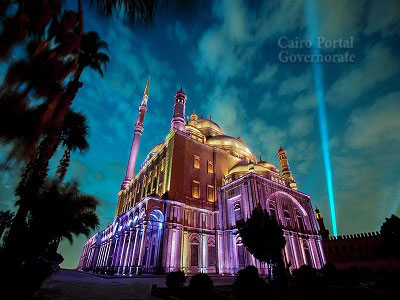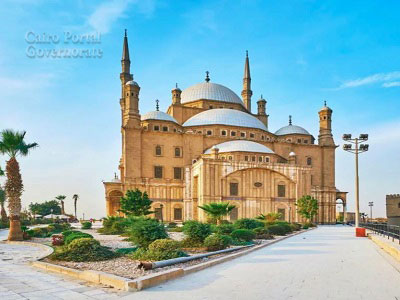Salah El-Din Citadel
Salah El-Din
Citadel, known as Mountain Citadel, is an ancient historic landmark and a
fortress of Old Cairo. The citadel was built by Salah El-Din Al-Ayyubi, the
founder of the Ayyubid dynasty, in 1176. It was also the residence of many rulers.


Salah El-Din built
the citadel to connect Cairo and Fustat, Egypt’s largest cities at that time,
to defend the city against the Crusaders. Unfortunately, the citadel’s
construction was not finished during his lifetime and was completed during the
era of Sultan Kamel.
Salah El-Din Citadel
witnessed many historical and significant events in Egypt’s history. It also bears witness to the fall of the
Mamluk dynasty, the Ottoman Empire’s control over Egypt, and the beginning of
the Mohammad Ali Pasha dynasty.
The citadel is
located on the Mokattam hills. It is divided into two main sections. The north section,
known as “The Fortress,” was used as a military garrison, and it has round and
square towers built by Salah El-Din and Sultan Kamel. As for the southwestern
section of the citadel, it was the official residence of the ruler.
One of the
still-standing towers of the citadel is “Al-Mokattam Tower,” located in the
northern section. It is a massive round tower higher than the rest of the
citadel’s towers, and for that, the ruler stayed at the tower to watch all the
citadel’s sections.

Next to the
“Al-Mokattam” tower is the Al-Saffa Tower, which represents a unique example of
military architecture. It is a square building consisting of two floors and is
famous for its domes and arrow slits.
Another impressive
tower is the Al-Mattar Tower, which used pigeon post to receive and send
messages all over Egypt and the Levant.
The “Ramlla” and
“Hadad” Towers are also two of the citadel’s largest ones forming its front,
from which any movements towards the citadel were monitored and stopped.
Visitors today enter the citadel through two gates. The
first is on Salah Salem Road, and it is known as the “Mountain Gate.” It was built
by Al-Naser Mohammad ibn Qalawun during the Bahri Mamluks era.
The second gate, known as the “New Gate,” can be reached
through the Qalaa Square. It hid the original gate of the citadel, which was
called the stepped gate due to the many steps leading to it.


